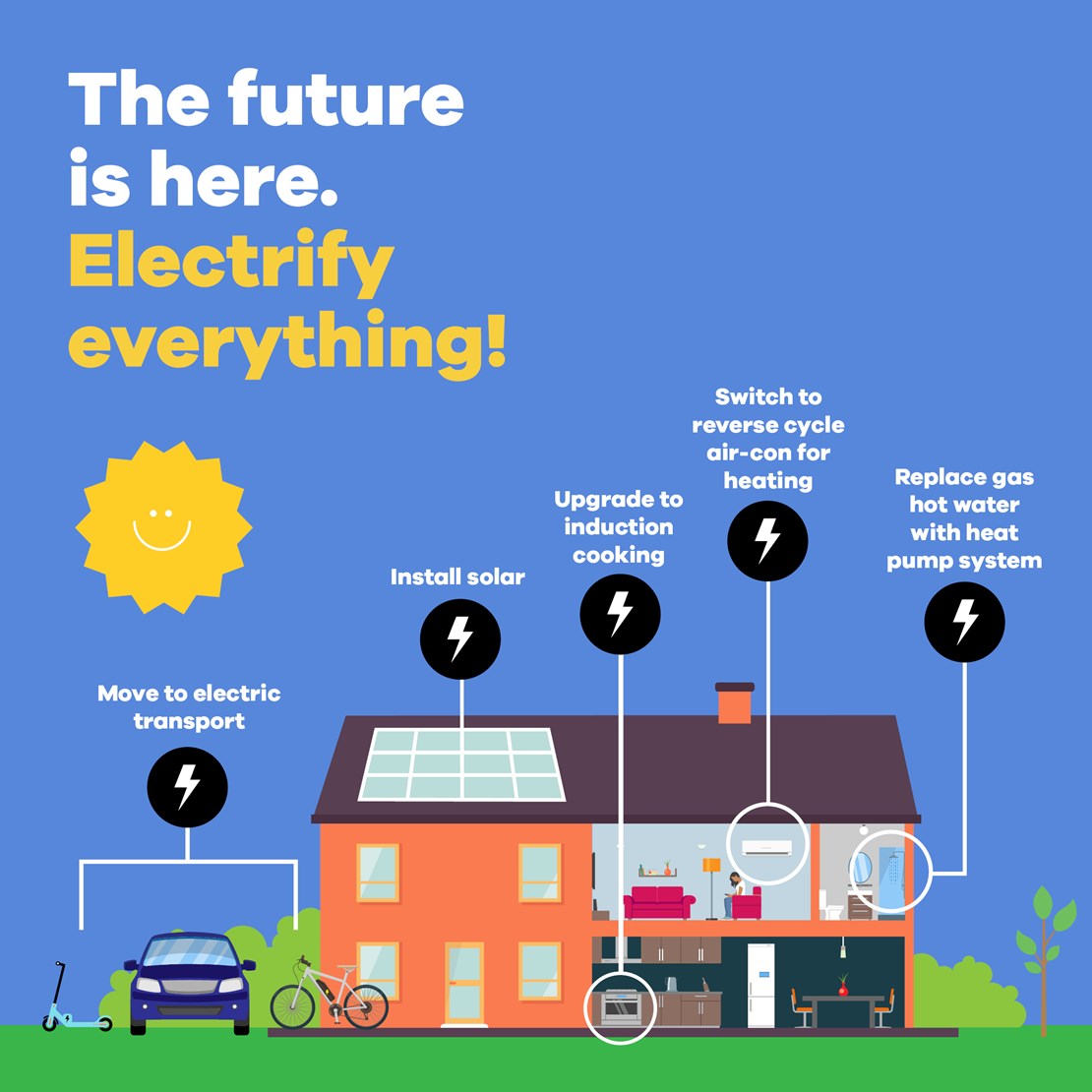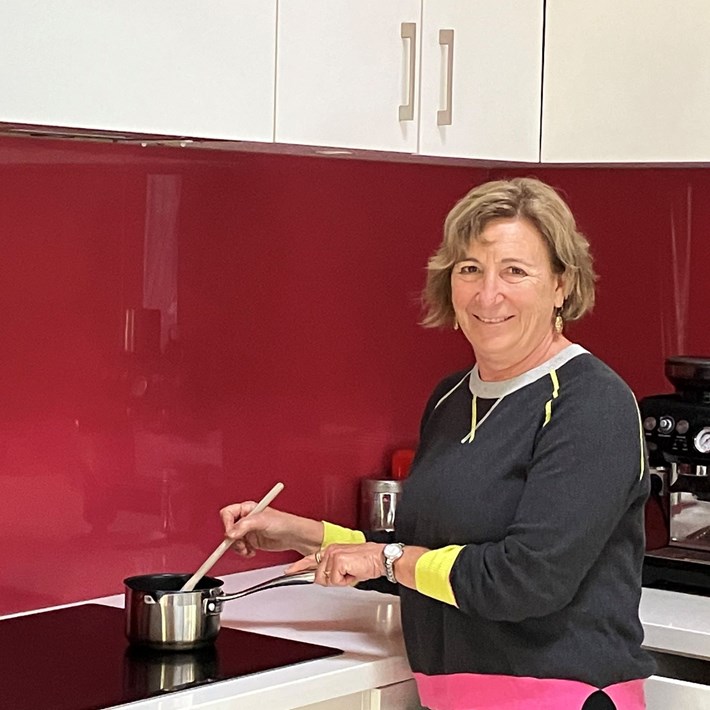Go electric
A healthy, safe and sustainable home
If your home is like many Victorians, you probably have lots of gas appliances. A healthier, cheaper and more environmentally friendly option is moving your home to all-electric appliances. Take some time to have a think about when your heating, cooling, hot water and stove may be ready for replacing and have a plan to move to electric appliances.
And it doesn’t have to be all at once. Take time to prepare so that when appliances, like hot water, need replacing, you’re ready to make the switch.
Whether it happens next year or in the next decade, make a plan now to go all-electric.

New home upgrades program - Solar Savers
Whether you need solar panels, a home battery system, a hot water system or a split system, the 'Solar Savers' home upgrades program is here to help. You get free advice, access to accredited installers, value for money and help with rebates. Working together with Solar Savers experts will give you peace of mind, making upgrading your home as smooth and simple as possible.
Solar Savers is a local government program that has installed over 600 solar systems and 90 home batteries since 2019. This year, the program has expanded to now offer heat pump hot water systems, solar hot water and split systems.
To start making upgrades today and bringing your bills down, visit Solar Savers.
Electric hot water systems - $1,000 rebates
Heat pump systems are the best water heating options for slashing your bills. According to Sustainability Victoria, heat pump water systems use around 60 to 75% less electricity than traditional electric hot water systems.
Heat pump systems absorb water from the air and transfer it to heat water, similar to how air conditioning works.
The Victorian Government’s Solar Hot Water program provides eligible Victorian households with a rebate of up to $1,000 to assist with the purchase of a heat pump hot water system or solar hot water. This is in addition to the $1,400 rebate available for solar panels.
Find the right system, visit Solar Victoria.
Induction stove tops
Induction stoves are a healthy, safe choice for your kitchen. According to the National Asthma Council, “Scientists have found that around 12 per cent of childhood asthma in Australia can be attributed to the use of gas stoves for cooking.” with recent studies comparing gas cooking with smoking indoors.
Unlike conventional electric hotplates, induction cooktops are fast, responsive and energy efficient. They’re safer than gas because there’s no open flame, the electro-magnetism heats the cookware, not the stove itself, you can typically set cook times (so if you forget, it switches off), and residual heat indicators let you know when the hotplates are safe to touch. Induction cooktops are also much easier to clean than the grooves and furrows of a gas stovetop.
For more information visit Choice for a buyers guide.
Reverse cycle air conditioning and heaters
Reverse-cycle air conditioning is most cost-effective and energy-efficient way to heat and cool your home.
Reverse cycle air-conditioning allows you to move away from polluting fossil fuels for your heating needs – and allows you to cool your home within the one system. It pays to do some research in to the right size system you will need. Check out this Choice size guide for more details.
You can also power the system with solar, if you have it, or GreenPower through your electricity provider.
Solar panels - subsidies $1,400
Save on your energy bills and greenhouse gas emissions by installing solar panels on your house. You are still connected to the mains power grid so when the sun is not shining you still have electricity.
The Victorian Government offers subsidies of $1,400 to reduce the cost of a new system.
Check out the Solar Panel Buyers Guide and how much you can save on energy bills via the Solar Calculator website.
Deborah's story of getting off gas
Local Port Phillip resident Deborah talks to us about where her passion for the environment came from and the changes she’s made to her period home to get off gas and make her home more sustainable.
Hear more about the changes Deborah made to her home including her advice on cooking with an induction stove, heating and heat pump hot water systems and how it saved her on average $950 per year on her bills.
Read Deborah's story

Induction electric stove top